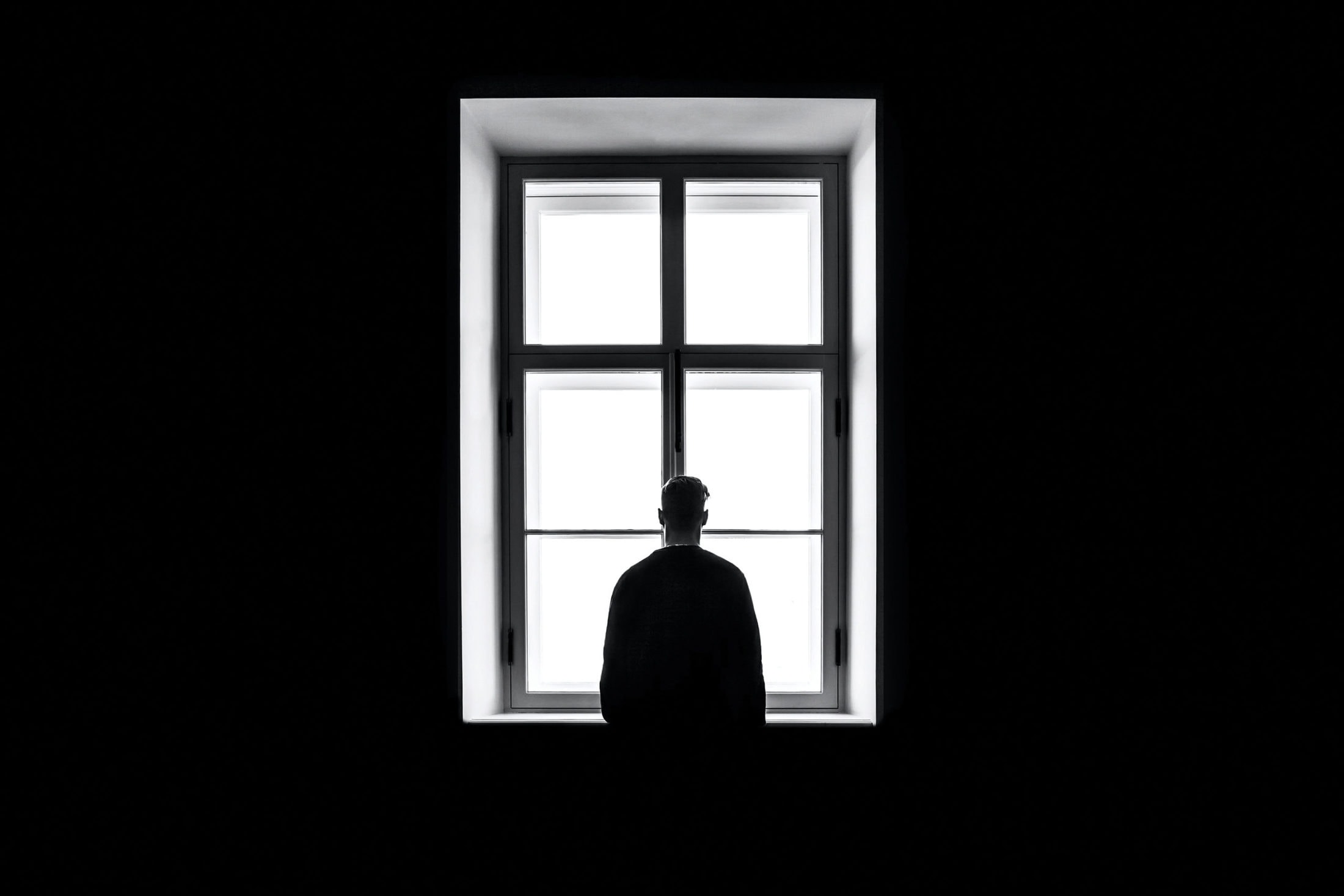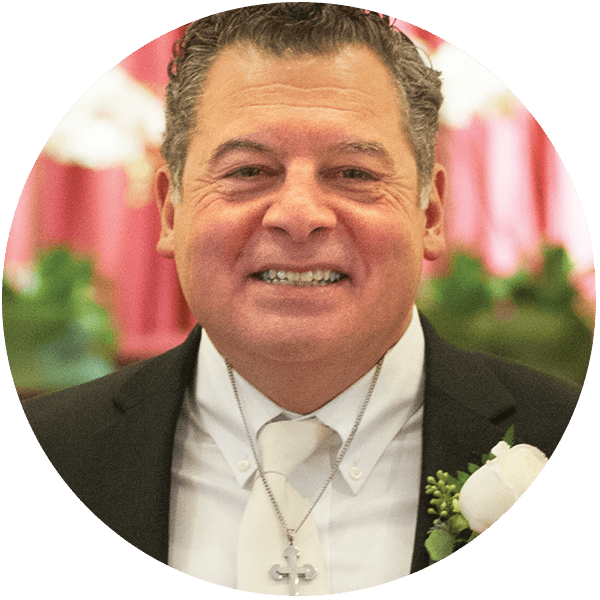Navigating the Emotional Toll of a Pandemic
My client is a 16-year-old student—polite, intelligent, articulate, with a caring family and a few good friends. I asked him why he wanted to see a therapist and how might I help him.
He didn’t feel like himself, he said. Shortly after the schools closed and isolation began, he’d begun to feel like his brain was an empty space and he couldn’t focus on his online schoolwork. Sometimes he had the sensation that someone else was living in his body—he knew it was him, it just didn’t feel like him. He was desperate to know whether he was going crazy.
I assured him he was not, but the world around us has gone crazy. Our minds are struggling to deal with all the changes and the anxiety and depression those changes produce in all of us.
The young man protested that he wasn’t feeling worried or sad—really, he was not feeling very much of anything. I replied, “That is the symptom of the grief we are all experiencing. For many people, escalations in anxiety and depression occur. Yet most of us are feeling a numbing sense of being trapped in grief over what we’ve lost and an unhinging uncertainty over what the future will hold.”
“But I’m not feeling any of those things,” he said.
I shared with him losses other clients have expressed: loss of loved ones, fear of illness, loss of jobs, loss of connection to family and friends and familiar places, like school and work and houses of worship. They talk about losing any semblance of control over their lives, losing the freedom to go where and do what we want, the fear that this won’t go away, that our loneliness will last forever, that no one will be there to care.
Even over Telehealth, I could tell he was wiping tears from his eyes.
Anxiety and depression can affect us in many ways. For this young man, on occasion his mind just said, “Nope, no more today” and refused to connect with the world he already felt disconnected from, the world of people and places and values that helps us all understand who we are.
This depersonalization/derealization is not an uncommon reaction to trauma. In fact, it’s not strange to feel like we’re not ourselves in a world that feels unlike it ever has before. When things get back to “normal,” some of these feelings will go away. Yet others may become somewhat indelible. We are all hurting, and we all feel that differently.
The reality of our times does not feel real. For most of us, disease, danger, and death are unfamiliar intruders. Their chronic presence unsettles our spirits, elevates our anxiety, deepens our depression, and evokes fear and anger. They disrupt our thinking, our feeling, our faith, and our relationships.
We’ve been shocked, scared, then quarantined, isolated, terrified, and horribly grieved. The worst is the loss of loved ones, but with the pandemic came the loss of our freedoms, our routines, our sense of what is normal. We’ve lost our (perhaps illusory) sense of control over our lives, the loss of social connections, familiar places, our sense of security, of being safe in the presence of other people, etc. Though we may not grieve to the point of depression, an ubiquitous sense of sadness seeps within us and around us. Add to that the anxiety what author David Kessler calls “anticipatory grief,” a paralyzing uncertainty about the future: “Will I get sick? Will my loved one die? Will we run out of money?”
In the midst of crisis our most powerful resource is a cultivated trust in the God who loves us.
For people of faith, a vibrant spirituality is a powerful emotional resource. But believing in a loving, caring, all-powerful God imposes perplexing theological questions that become personal dilemmas: “Why is God allowing this suffering to continue? Why did my loved one die? Where is God in my distress? How can this be God’s plan for my life?”
I journeyed with one faithful Christian middle-aged man who was going through a painful divorce after a series of destructive choices. He had wandered far from God and his family and was desperately seeking a way back. His own overwhelming guilt led to paralyzing anxiety and panic attacks that made him feel like he was going to die. He had to leave his medical practice. He felt cut off from his children. His world was imploding.
When he sought medical help, he was referred to counseling, where he dove into therapy. He agreed to some help from medication. Eventually, he courageously returned to church and joined a men’s group that surrounded him with care and acceptance. He sought out a spiritual counselor and devoted himself to prayer. Six months later, he is still going through a divorce, but he is back to work, supported by church friends. He feels less anxious and more hopeful and is trusting in God again.
Serious symptoms of mental/emotional illness may require professional intervention, but less severe signs should be taken seriously too. The symptoms of anxiety and depression tend to be less severe in the general population than in those with previous mental health conditions, but they should still be treated with care: boredom, nervousness, agitation, sleeplessness, irritability, impatience, frustration, angry outbursts, and conflict in relationships are common. People may also experience cognitive decline, inability to focus, disinterest in activities, lack of motivation, melancholy, hopeless feelings, even despair. Other signs to watch for include isolating from relationships, binge eating/drinking, frequent mood swings, critical judgments of others, perseveration on thoughts/fears, odd cognitions and significant behavioral changes (such as substance use, emotional expression, etc.), and expressions of suicidal thinking.
Some healthful ideas for interventions and ongoing mental/emotional health include both options to embrace our feelings as well as the opportunity to be distracted from them. Try whichever practices might work for you.
• Stay safely connected to others. Anxiety and depression tend to isolate us in fear and sadness. Talk with family and friends about how you are feeling. Listen well when others need to share. Socialize often, in person or virtually. Healing is mutual. So is hope.
• Exercise daily (especially when you don’t feel like it), preferably outdoors to improve and stabilize moods. Walking, jogging, and biking get our bodies moving; sunlight and fresh air and embracing God’s creation are enormously beneficial to our spirit.
• Practice other positive distractions, like cooking, gardening, reading, puzzles, and family game nights. Excessive “screen time” can exacerbate symptoms, especially in children.
• Plan weekly events to look forward to: family walks/hikes in open parks/beaches, socially distanced visits or virtual dinners with relatives and friends, bike rides, etc.
• Practice mindfulness at least once a day. Go online or to phone apps for instruction in grounding, breathing, guided imagery, and other mindfulness techniques. The point here is not to avoid the distress, but to embrace those feelings, to sit with them long enough to explore their source and uncover what you might learn from them. Then consciously, even verbally, accept yourself completely and affirm to yourself that you are OK, that things will get better.
• Practice acts of kindness. When possible, grocery shopping for a neighbor, visiting on a lawn, or cooking a meal can be a meaningful way to release ourselves from preoccupation with our own concerns, and enjoy the gift of compassion.
In the midst of crisis our most powerful resource is faith—not just belief, but a cultivated trust in the God who loves us. We hope in the God who knows our needs and who cares about our hopes and fears, hurts and griefs.
The apostle Paul addresses our situation directly in Philippians 4, a letter he wrote from prison when he was uncertain about his own future: “Rejoice in the Lord always; again I will say, Rejoice….The Lord is near. Have no anxiety about anything, but in everything by prayer and supplication with thanksgiving let your requests be made known to God. And the peace of God, which surpasses all understanding, will guard your hearts and your minds in Christ Jesus….I can do all things through him who strengthens me.”
In his own isolation and uncertainty, Paul urges us to rejoice in the knowledge that God is always with us, that we are never alone, even in our loneliness and distress. He urges us to bring all our needs—our hurts, fears, and worries—to God in a spirit of gratitude that God hears our prayers and cares for us.
But then Paul’s wisdom grows even more profound. Through that trusting prayer, he promises that the peace (which means presence) of God will preserve and protect our hearts and minds in Jesus, who is God with us, relieving the anxiety that undermines our trust and hope. We focus our faith incarnationally—not wondering where God is in the world or in our life, but seeking the God who dwells with us and within us.
I invite you to focus on the Holy Spirit indwelling your heart and mind with healing peace, powerful presence, and joyful hope. Deepen your prayer life by adding mindfulness techniques of deep breathing, self-acceptance, emotional awareness, and distress tolerance. (Look up “dialectical behavioral therapy” on Wikipedia!) Pray for others in danger or in need, for those suffering from illness or injustice, for the church and its witness in these days, and for all who lead us and serve us. End every prayer with thankfulness for God’s persistent, loving care, and his valuation of us as his beloved children for whom he sent his Son.
Add to your prayer life times of meditation on Scripture—seeking not knowledge but immersion in the living Word, Jesus. Focus on peaceful, hopeful verses of Scripture, and imagine Jesus speaking these words to you. Consider this mental health wisdom: “Trust in the Lord with all your heart, and do not rely on your own insight. In all your ways acknowledge him, and he will direct your paths” (Proverbs 3:5-6).
Christ has made us his church so we could together be connected, encouraged, and cared for, so we could have a place where we belong and are welcomed and accepted. God has created that instinct in us, and for good reason: our healthiest, truest, and most faithful self is found in communities of people who exchange love and compassion and mercy for others. If we can exercise patience, wisdom, and safety, then returning to our houses of worship will be a wonderful “medicine” for the soul. In that process, we can offer ourselves and our churches as a sign to others of the value of faith in God in the ways we move forward with hope and compassion for ourselves and our communities.
Mental and emotional health issues are not a sign of moral or spiritual weakness, but rather an all too common aspect of our human condition. We are “fearfully and wonderfully made” by God, but sometimes we are physically fragile and emotionally vulnerable. You are not alone. We will get through this together with God and each other. Treat yourself with kindness. Treat others with extraordinary kindness. Be well. Peace be with you.














